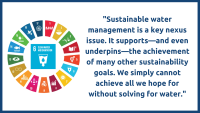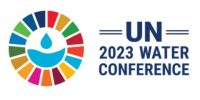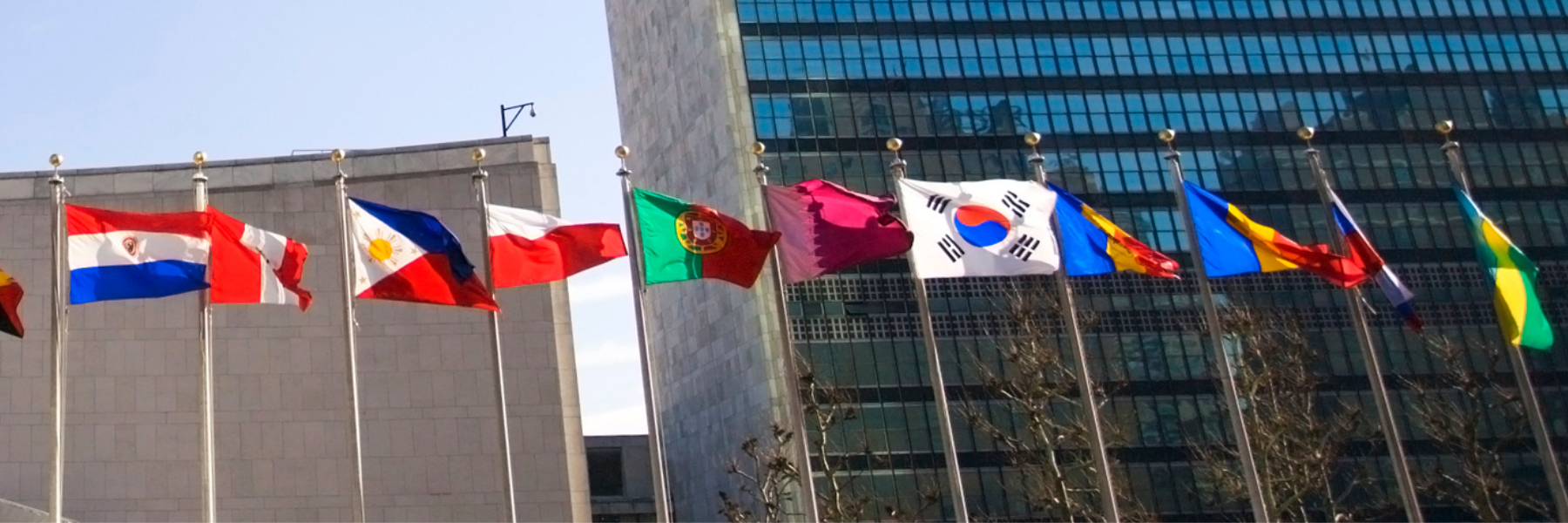Pacific Institute to advance water resilience across public and private sectors at historic UN 2023 Water Conference
By: Dr. Amanda Bielawski, Jason Morrison, Mai-Lan Ha, Dr. Peter Gleick, and Heather Cooley
Key Takeaways
- The UN 2023 Water Conference 22-24 March is an unprecedented opportunity for water to advance on the global agenda.
- The Water Action Agenda—the main outcome of the conference—aims to accelerate and coordinate global multi-sectoral progress on water akin to what the 1.5-degree Paris commitment did for climate.
- The Pacific Institute will play a convening and thought leadership role during the conference. We will convene the private sector in support of the Business Leaders’ Open Call to Accelerate Action on Water, a key component of the Water Action Agenda. We will also provide thought leadership and public sessions on water conflict and water efficiency and reuse.
- Part 2 of this blog series in the run-up to the UN Water Conference will address how the Pacific Institute’s work supports SDG 6 targets and the broader 17 SDGs through a multi-benefit approach, as well as our broader organizational commitment to the Water Action Agenda.
The United Nations’ Sustainable Development Goals (SDGs) prioritize ambitions on 17 interlinked sustainability issues to reach by 2030. Of these, SDG 6 focused on water is central to achieving the overall 2030 Agenda for Sustainable Development.

Why? Sustainable water management is a key nexus issue. It supports—and even underpins—the achievement of many other sustainability goals, including those related to food security (SDG 2), human health (SDG 3), clean energy (SDG 7), climate change (SDG 13), and biodiversity (SDG 15). Consider for a moment how human health can be achieved without first having access to clean water, or how biodiversity can thrive if ecosystems lack the adequate and clean water they need.
We simply cannot achieve all we hope for without solving for water.
Unfortunately, progress toward SDG 6’s targets has fallen far short. SDG 6 was recently described as being “alarmingly off track” by the SDG 6 Global Acceleration Framework. While water is acknowledged as a human right (a global right the Pacific Institute helped secure), 2.2 billion people around the world continue to lack access to safe drinking water. This is a global problem afflicting developed and developing countries alike. Even in the United States, where the Pacific Institute is headquartered, more than 2 million people still lack running water and basic indoor plumbing.
UN 2023 Water Conference: Hope for a Paris moment

The United Nations held its first water conference nearly 50 years ago. And while considerable progress has been made since, many water issues identified in 1977 still challenge us today.
Action has not happened fast enough.
We need a larger-than-Paris Moment for water, one that exceeds the impact of what the signing of the 2015 Paris Agreement achieved at the time for climate. We urge leaders across all sectors to create that moment later this month.
The UN Water Conference to be held 22-24 March at UN Headquarters in New York is an opportunity to re-set this trajectory and speed the plan for progress for the next seven years—toward 2030. Convened by the UN General Assembly, the Conference is an unprecedented opportunity for water to advance on the global agenda. But this will require the public sector, private sector, and civil society to join hands in new ways—through radical collaboration. The Conference will feature opening and closing ceremonies, six plenary sessions, five thematic dialogues, and a range of side events. Read more here.
The Pacific Institute at the UN Water Conference
Just as we have been at the UN Climate Change Summit, the World Economic Forum Annual Meeting, Stockholm World Water Week, and other major global events, the Pacific Institute will be front and center at the UN Water Conference hosting a wide range of meetings, convenings, and public discussions.
Convening the private sector
One of our primary activities will be to convene the private sector to make new financial and action commitments on water resilience. Through our leadership of the UN Global Compact CEO Water Mandate, which unites 240 global companies to act on water stewardship, we will mobilize companies on two specific commitment opportunities.

First, in partnership with the UN Global Compact and other partners, we’ll unite some of the largest companies in the world to commit to help solve the global water crisis. By signing the Business Leaders’ Open Call for Accelerating Water Action, companies will agree to build water resilience across their global operations and supply chains. They will also commit to work collaboratively to achieve collective positive water impact in at least 100 vulnerable prioritized water basins by 2030.
Second, through our leadership of the CEO Water Mandate’s Water Resilience Coalition, we will announce a new pipeline of corporate investment opportunities for building water resilience through 2030. This underpins the Coalition’s 2030 strategy to achieve quantifiable positive water impact (based on the Net Positive Water Impact framework our colleagues developed) in 100 water-stressed basins, contribute to water security for 3 billion people, and enable equitable access to water, sanitation and hygiene (WASH) for more than 300 million people by 2030. For more information about these efforts and other private sector-focused events we’re leading at the Conference, click here.
Advancing thought leadership on water efficiency & reuse and water conflict
The Pacific Institute will also provide leadership during official UN Water Conference Side Events on two key topics: innovative approaches to increase water efficiency and reuse, linked to SDG 6 targets 6.3 and 6.4 on water recycling and efficiency, and highlighting the role water plays in global conflict and cooperation, linked to SDG 6 target 6.5 related to transboundary cooperation. We invite you to attend these events:
Harnessing the Power of Water Efficiency and Reuse
ONLINE: Monday, March 20, 12 PM – 1 PM EST
Co-Convenors: Pacific Institute and United States Environmental Protection Agency
Explore water efficiency and reuse opportunities and national and global strategies for promoting greater uptake.
Speakers:
• Heather Cooley, Pacific Institute Director of Research
• Sharon Nappier, National Program Leader for Water Reuse,
Office of Water, US EPA
• Akissa Bahri, Professor, researcher, and former Minister of Agriculture,
Water Resources and Fisheries and Secretary of State in charge of
Water Resources, Government of Tunisia
Moderator:
• Shannon Spurlock, Pacific Institute Senior Researcher &
President, WateReuse Colorado
Register here.
Water, War, and Peace
ONLINE & IN-PERSON: Friday, March 24, 10:30 AM - 12:00 PM EST
The Taylor Room; Jay Conference Center; 515 Madison Avenue, 10th Floor, NYC
Co-convenors: Pacific Institute, Circle of Blue, World Resources Institute, The Hague Centre for Strategic Studies
Explore effective strategies for reducing the risks of water-related violence and promoting peaceful and sustainable water management practices worldwide.
Speakers:
• Peter H. Gleick, Pacific Institute
• Liz Saccoccia, World Resources Institute
• Irina Patrahau, The Hague Centre for Strategic Studies
Moderator:
• Carl Ganter, Circle of Blue
Register here for online attendance.
Register here for in person attendance.
The Water Action Agenda
The UN 2023 Water Conference kicking off on World Water Day is hoped to be a game changer for water. In the words of UN Secretary-General António Guterres, “The UN 2023 Water Conference in March must result in a bold Water Action Agenda that gives our world’s lifeblood the commitment it deserves.”
While there is no negotiated outcome planned, there will be two major outcomes designed to continue post-conference water action momentum into the future: a summary of the proceedings and the Water Action Agenda.
The Water Action Agenda aims to accelerate and coordinate global multi-sectoral progress on water akin to the way the 1.5-degree Celsius commitment of the 2015 Paris Agreement did for climate action, although commitments are voluntary. Commitments—water-related initiatives by governments, UN bodies, businesses, NGOs, academia, and others—can be made to the Water Action Agenda here before, during, or after the UN Water Conference.
The Business Leaders’ Open Call for Accelerating Water Action mentioned above will unite companies to make a unified commitment to the Water Action Agenda for the corporate sector. We’ll discuss the Pacific Institute’s broader commitment to the Water Action Agenda in part 2 of this blog series next week.
Post-conference momentum
The momentum created during the UN Water Conference will be central as the Water Action Agenda continues to advance on the global stage during upcoming moments, including the UN High-Level Political Forum for Sustainable Development (HLPF) in July and the SDG Summit in September. We also anticipate water to play a key role at COP 28 in Dubai starting in November, continuing water’s advance on the climate agenda building from COP 26 in Glasgow in 2021 and COP 27 in Sharm el-Sheikh last year.
Will a Paris moment for water emerge at the historic UN 2023 Water Conference? Follow us on LinkedIn and Twitter to find out. To receive a copy of the Pacific Institute’s upcoming special newsletter devoted to the UN Water Conference, click here.
Learn more about the Pacific Institute’s conference sessions, many of which are accessible virtually, and register here.
Part 2 of this blog series in the run-up to the UN Water Conference will address how the Pacific Institute’s work supports specific SDG 6 targets and the broader 17 SDGs through a multi-benefit approach.


